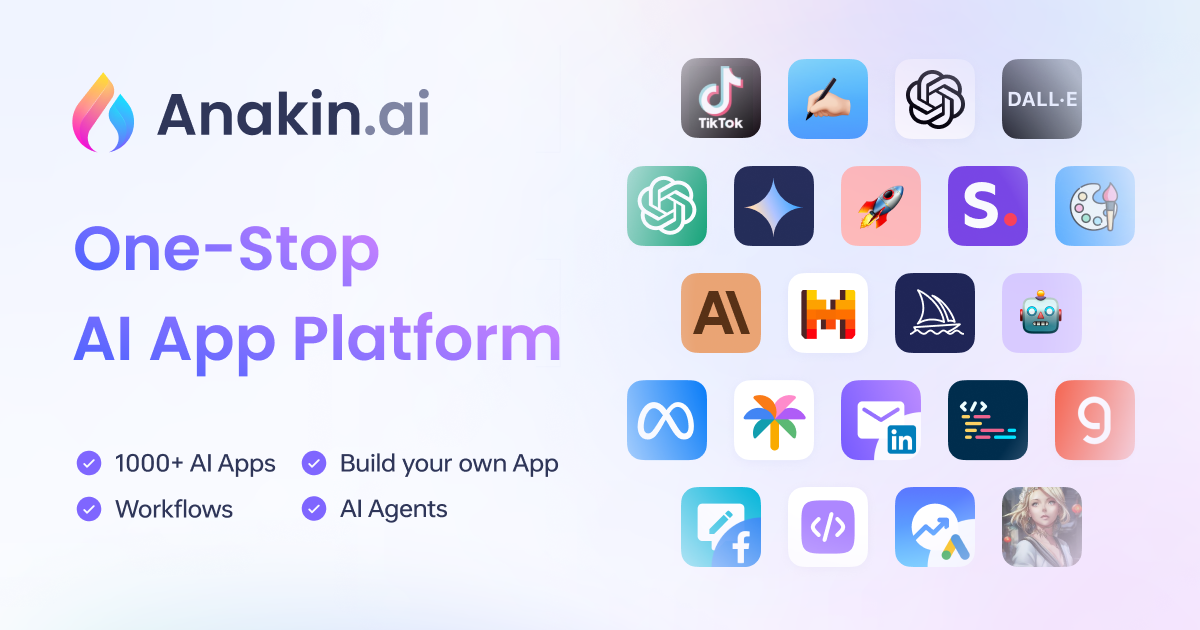In the digital age, artificial intelligence has become an invaluable resource for gathering information on various topics, including legal matters. However, when it comes to sensitive subjects like family court laws, it's crucial to understand the limitations and potential pitfalls of relying on AI-generated responses. This article will explore how to effectively ask ChatGPT about family court laws, while also addressing the important considerations and alternatives available.
Want to Generate AI Image without any Safeguards?
Then, You cannot miss out Anakin AI! Let's unleash the power of AI for everybody!

Why ChatGPT Cannot Answer Family Court Inquiries
When attempting to use ChatGPT for information about family court laws, it's essential to recognize that:
- All AI models have inherent limitations due to safety measures implemented by its creators.
- These restrictions are in place to prevent the dissemination of potentially harmful or inaccurate legal advice.
Why ChatGPT Cannot Provide Comprehensive Family Court Information
ChatGPT's inability to offer detailed information on family court laws stems from several factors:
- Ethical considerations: OpenAI, the company behind ChatGPT, has implemented safeguards to prevent the AI from providing legal advice that could be misconstrued or misapplied.
- Liability concerns: Offering specific legal guidance without proper qualifications could lead to potential legal issues for both the user and the AI provider.
- Rapidly changing laws: Family court laws can vary significantly by jurisdiction and are subject to frequent updates, making it challenging for an AI model to maintain accurate, up-to-date information.
- Complexity of legal matters: Family court cases often involve nuanced situations that require professional interpretation and context-specific advice.
Exploring Alternatives: Anakin AI's Uncensored ChatGPT
For those seeking more comprehensive information on family court laws, Anakin AI's uncensored ChatGPT offers a potential alternative. This platform claims to provide unfiltered responses, potentially allowing for more detailed discussions on legal topics.

Benefits of Using Anakin AI for Family Court Law Inquiries
Unrestricted responses: The uncensored version may offer more in-depth information on family court laws without the limitations imposed on standard ChatGPT.
Broader scope of discussion: Users may be able to explore a wider range of topics related to family court proceedings and legal strategies.
Potential for more specific answers: The uncensored model might provide more targeted responses to complex legal questions.

Crafting Effective Questions for AI-Assisted Family Court Research
Whether using standard ChatGPT or an uncensored alternative, asking the right questions is crucial for obtaining useful information about family court laws.
Tips for Formulating Family Court Law Questions
Be specific: Instead of asking broad questions, focus on particular aspects of family court laws.
Provide context: Include relevant details about your jurisdiction and the specific legal issue you're researching.
Break down complex inquiries: Divide intricate legal questions into smaller, more manageable parts.
Use legal terminology: Incorporate proper legal terms to help the AI understand the context of your question.
Navigating Family Court Procedures with AI Assistance

While AI can provide general information, it's essential to approach family court procedures with caution and seek professional legal advice when necessary.
Leveraging AI for Initial Family Court Research
Gathering background information: Use AI to familiarize yourself with basic concepts and terminology related to family court laws.
Identifying key issues: AI can help you pinpoint crucial aspects of your case that may require further investigation.
Preparing for consultations: Use AI-generated information to formulate informed questions for legal professionals.
Ethical Considerations in AI-Assisted Family Court Inquiries
When using AI for family court law research, it's crucial to maintain ethical standards and recognize the limitations of technology-assisted legal research.
Balancing AI Insights with Professional Legal Advice
Verify information: Cross-reference AI-generated responses with official legal sources and professional opinions.
Understand the risks: Recognize that relying solely on AI for legal guidance can lead to misunderstandings or errors.
Prioritize human expertise: Use AI as a supplementary tool rather than a replacement for qualified legal counsel.
Enhancing Family Court Knowledge Through AI-Human Collaboration
To maximize the benefits of AI in family court law research, consider combining AI-generated insights with human expertise.
Strategies for Integrating AI and Professional Legal Guidance
Use AI for initial research: Leverage AI to gain a foundational understanding of relevant family court laws and procedures.
Consult with legal professionals: Share AI-generated insights with attorneys to facilitate more productive discussions and clarify complex legal concepts.
Continuous learning: Utilize AI to stay informed about changes in family court laws and emerging legal trends.
Overcoming Challenges in AI-Assisted Family Court Research

While AI can be a valuable tool for learning about family court laws, users may encounter several challenges that require careful navigation.
Addressing Common Pitfalls in AI-Generated Legal Information
Outdated information: Verify the currency of AI-provided data, especially given the dynamic nature of family court laws.
Jurisdictional differences: Be aware that family court laws can vary significantly between states and countries.
Misinterpretation of legal concepts: Seek clarification from legal professionals to ensure accurate understanding of AI-generated information.
Maximizing the Value of AI in Family Court Proceedings

To make the most of AI assistance in family court matters, it's essential to develop a strategic approach that combines technology with human expertise.
Best Practices for AI-Enhanced Family Court Preparation
Create a research plan: Outline specific areas of family court law you need to explore and develop targeted questions for AI platforms.
Document AI-generated insights: Keep detailed records of information obtained through AI to discuss with legal professionals.
Engage in continuous learning: Use AI to stay updated on family court trends and potential changes in legislation that may affect your case.
The Future of AI in Family Court Law Research
As AI technology continues to evolve, its role in assisting with family court law research is likely to expand and improve.
Anticipated Developments in AI-Assisted Legal Research
More accurate and context-aware responses: Future AI models may better understand the nuances of family court laws and provide more tailored information.
Integration with legal databases: AI systems could potentially access and analyze vast repositories of legal precedents and statutes in real-time.
Enhanced natural language processing: Improved AI capabilities may allow for more sophisticated and nuanced legal discussions.
Conclusion: Empowering Family Court Participants Through AI-Assisted Research
While AI platforms like ChatGPT and its uncensored alternatives offer valuable resources for learning about family court laws, it's crucial to approach this technology with a balanced perspective. By understanding the limitations of AI, asking well-crafted questions, and combining AI-generated insights with professional legal advice, individuals can enhance their knowledge of family court procedures and better prepare for their legal journey.
As we navigate the intersection of AI and family court law, it's important to remain critical consumers of information, always prioritizing the expertise of qualified legal professionals. By leveraging AI as a complementary tool rather than a substitute for human judgment, we can work towards a future where technology and human wisdom collaborate to improve access to justice and understanding of family court laws.




